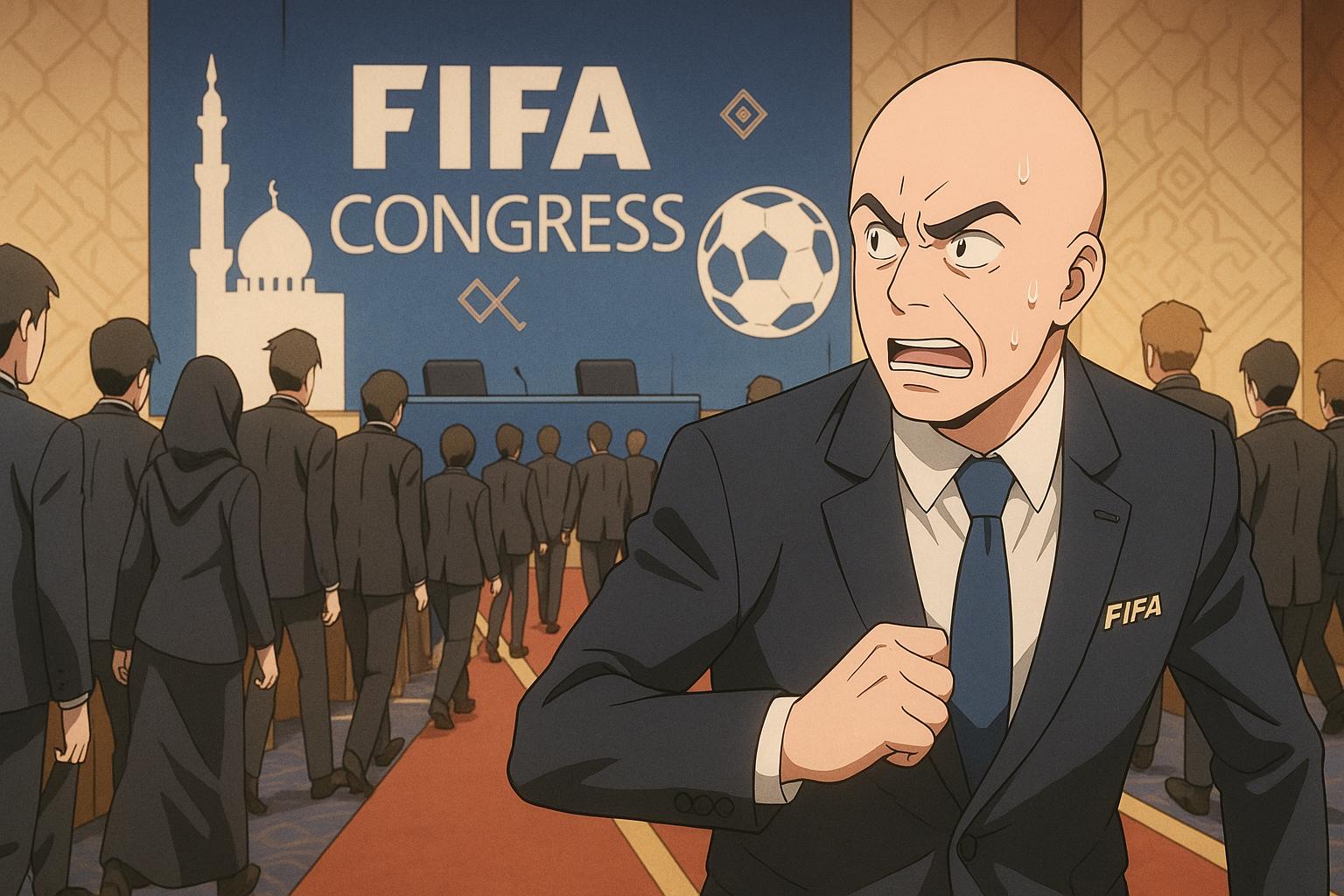FIFA President Gianni Infantino faced considerable backlash during the organisation's congress in Asuncion, Paraguay, after his late arrival sparked outrage among delegates. Infantino’s tardiness was attributed to his participation alongside U.S. President Donald Trump on a diplomatic trip to the Middle East, which evidently took precedence over the annual gathering of FIFA's members. This late arrival led to an extraordinary scene as several officials, including key FIFA council members, staged a walkout in protest.
The congress, which was originally scheduled to begin at 9:30 a.m., had to be delayed twice, finally commencing at 12:47 p.m. This extended delay did not sit well with representatives from various member associations, particularly those in Europe, who expressed their discontent regarding Infantino's prioritisation of "personal political interests" over the integrity of football governance. UEFA issued a statement labelling the delay as a troubling indication of the FIFA leadership's focus.
Norway Football Federation president Lise Klaveness articulated this dissatisfaction, characterising Infantino’s late arrival as not just disappointing but also troubling for the future of FIFA. Her comments underscored a growing sentiment among European members who feel sidelined by the leadership's close ties with political figures. "We now expect FIFA to explain this situation to its members and ensure that the voices of the member associations are heard and respected going forward," Klaveness stated.
In response to the outcry, Infantino extended his apologies to the assembly, emphasising the importance of his trip to the Middle East in light of upcoming World Cups in Qatar and Saudi Arabia, as well as the 2026 World Cup hosted jointly by the USA, Canada, and Mexico. He insisted that discussions with world leaders were vital for the future of football, claiming, "I felt like I had to be there to represent all of you, to represent football."
During the Middle East visit, Trump held meetings with influential leaders such as Saudi Crown Prince Mohammed Bin Salman and the Emir of Qatar, Tamim Bin Hamad Al Thani, which Infantino accompanied. This association not only solidified his presence in high-profile diplomatic discussions but also revealed a pattern of Infantino’s willingness to intertwine football leadership with political expediency.
Despite the controversies surrounding Infantino, he continues to maintain his relationship with Trump, who has previously referred to him as a "good friend.” Infantino's defence of this connection implies that he views such affiliations as crucial to securing favourable outcomes for international football events.
Moreover, Infantino's focus seems to extend beyond political connections, as he is also exploring ambitious proposals for the future of global football governance. During the congress, he expressed support for the notion of expanding the 2030 World Cup to 64 teams, a suggestion that signals a shift towards inclusivity and broader participation in the sport's most prestigious tournament.
As FIFA navigates these turbulent waters, the tension evident during the congress in Paraguay serves as a reminder of the complex dynamics between sports administration and global politics. The future of FIFA will likely depend on how well its leadership balances these interests, addressing the concerns of member associations while pursuing opportunities for growth and visibility on the world stage.
Reference Map
Source: Noah Wire Services
